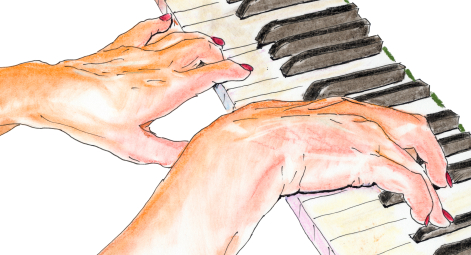
Before I go on, let me qualify that title: whether or not I will continue teaching lessons is NOT the question. But it’s a curious topic amongst music therapists.
Yesterday, I had a brief conversation with one of my music therapist friends about teaching lessons. It seems that there are two different camps in our profession: those who stick to music therapy and don’t offer music lessons at all, and those who do. I most definitely fall into the latter camp.
Even before I made the decision to become a music therapist, I taught lessons. It was a great way to make spending money back in college, and what I realized early on is that teaching was the perfect way to keep up my skills as a musician. In fact, I owe several young children (who are all grown up now) for getting me back to the piano — an instrument with which I had a love/hate relationship at one point — in order to teach their lessons.
Now all these years later, I am a much better pianist because of those lessons, and feel like I continue to get better the more I teach. Same with guitar and voice. And all of those skills carry over into my music therapy work, which is why I consider teaching to be a crucial part of not only my business, but also my professional development.
As a music therapist (if you are one), what are your thoughts on teaching lessons? Do you fall into my camp, or are you a music therapy purist?


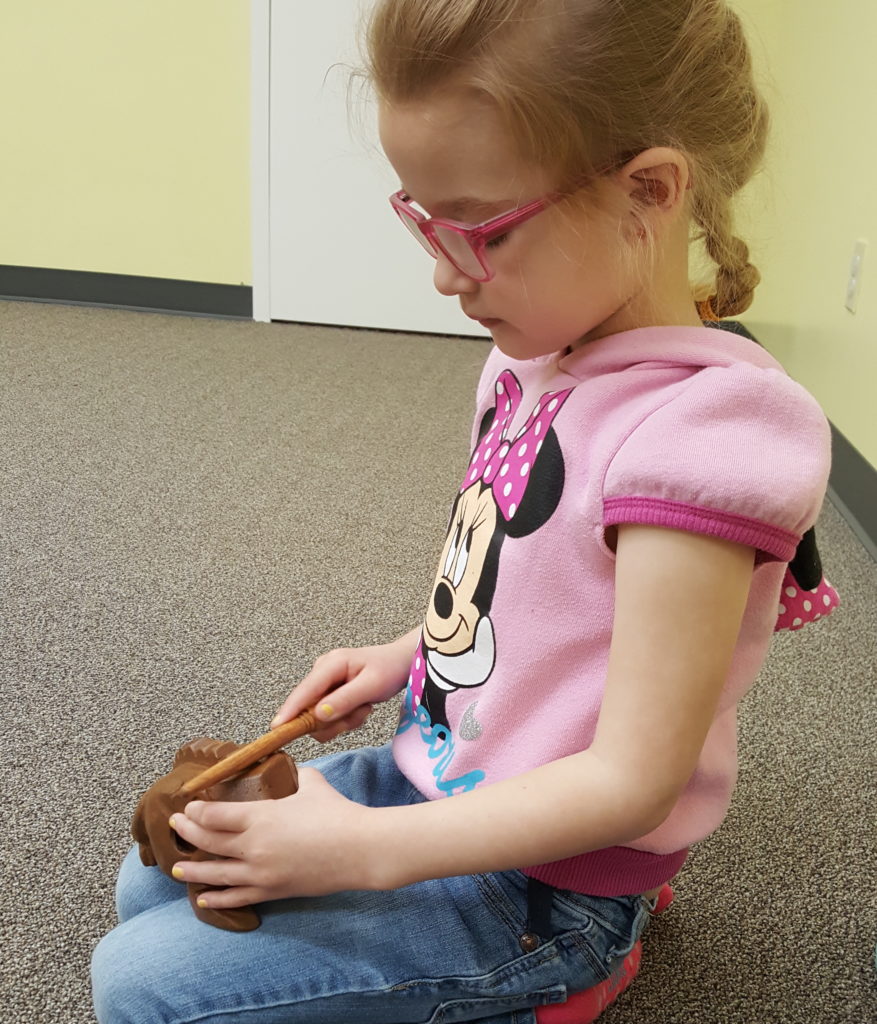


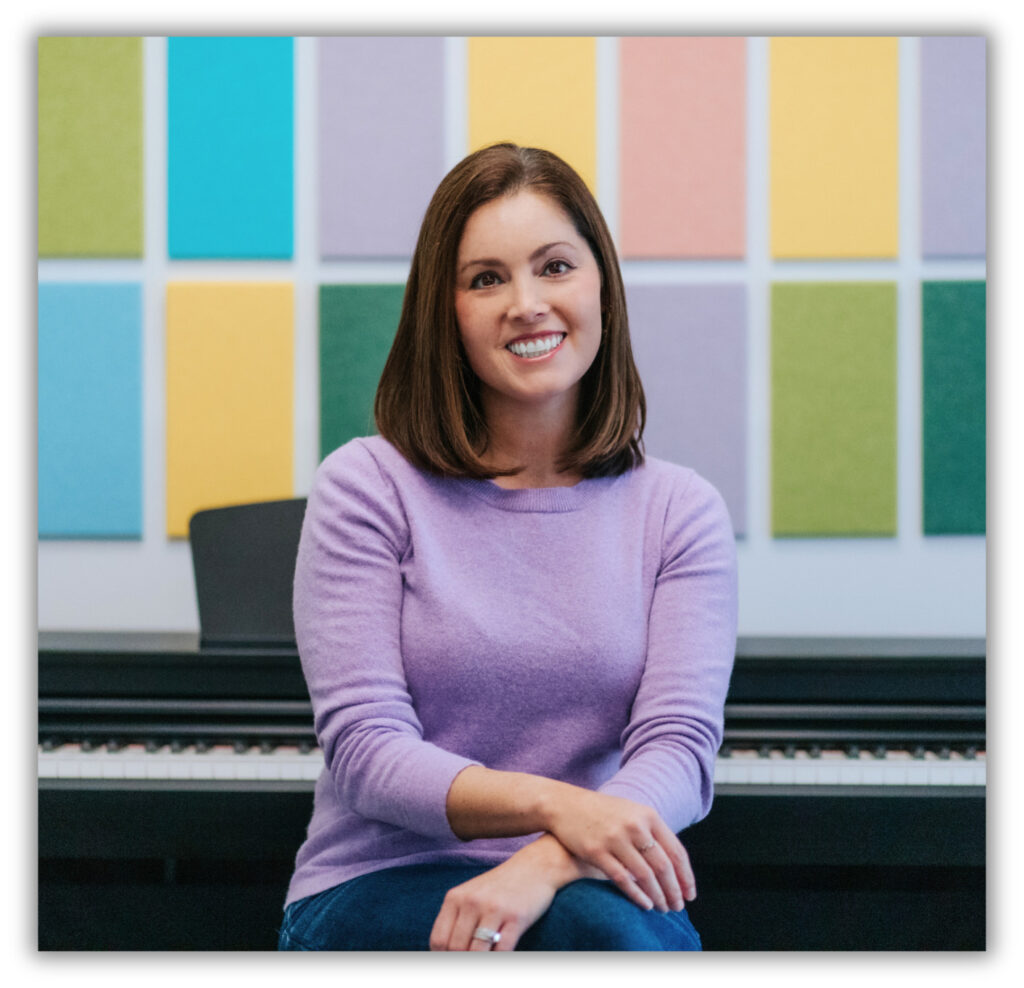
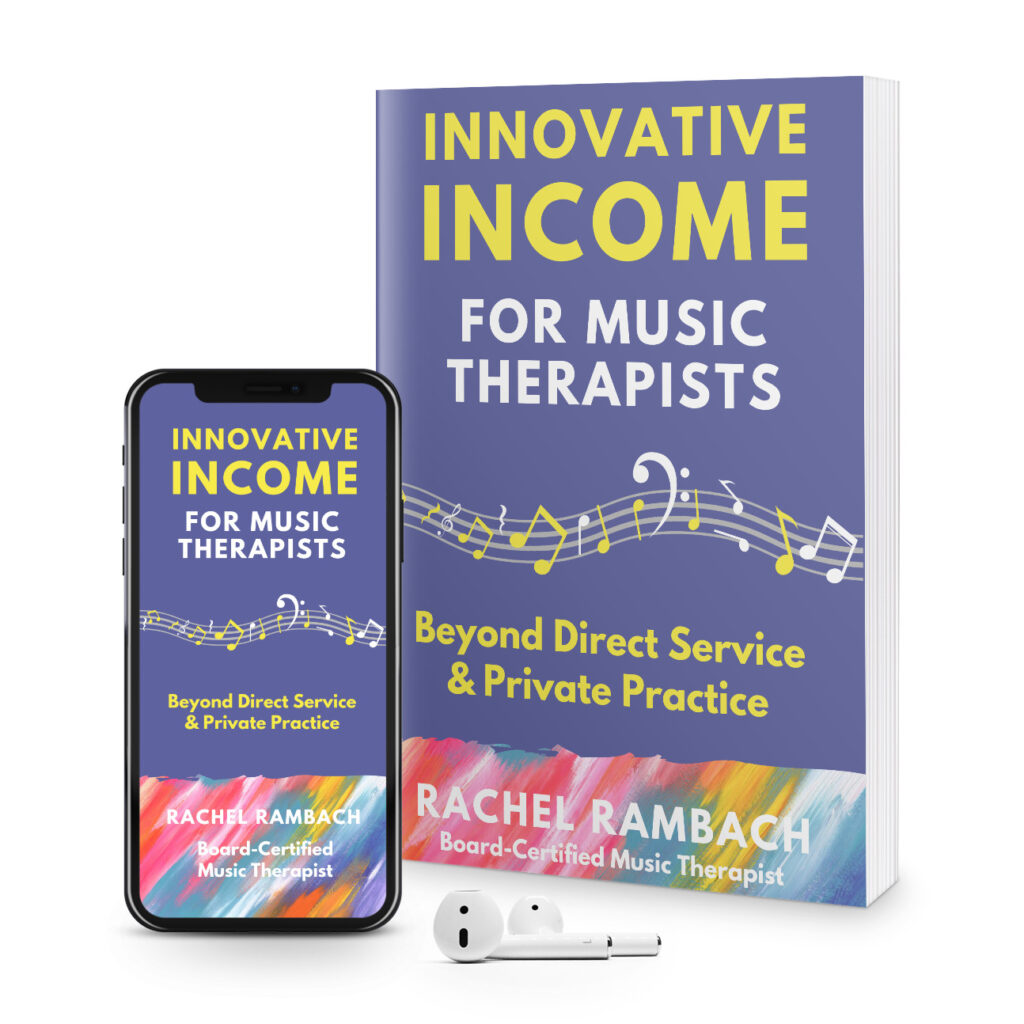
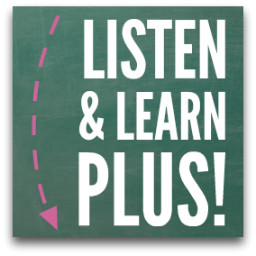
I’m in the purist camp. However, I think that’s largely because of my undergrad training. At my university, the music ed and music therapy students were very separate– that was just the culture at my school. We didn’t have any classes in common except music theory and history and even hung out in separate wings of the music building. In my therapy classes, it was strongly enforced that we were *therapists*, not educators, not teachers (in the traditional sense of those terms).
Several times over the years I’ve considered teaching piano lessons (on the side) but have always felt incredibly unprepared for that realm– probably due to my undergrad experience. I wouldn’t even know where to begin for materials, songbooks, lesson plans, etc.
I don’t think any less of other MT’s who teach lessons, though. There’s nothing wrong with introducing and educating people on how to create beautiful music!
Thanks so much for sharing your input, Stephanie. I was a performance major as an undergrad at a very small school where everything music-related took place in one building, which I think had a strong influence on my decision to teach as well. I can definitely see how your experience would steer you toward the purist camp.
I’ve always taught a couple of guitar or piano students on the side, and my favorite part about it is interacting with kids who are developing at a more typical pace. I don’t consider it part of my music therapy practice, and when I’ve advertised in the past, I did it through a separate website. I do tell prospective students that I’m a music therapist, though, because that has a huge impact on how I teach.
I am right there with you, Rachelle — teaching offers a change of pace and I think helps prevent burnout for me, personally. And absolutely, being a music therapist impacts how I teach as well. For the better, I think!
I just recently struggled with this question. I’m going into private practice this fall and as part of the agreement with my studio space I’m teaching voice on staff there 2 evenings a week but doing my own private MT the rest of the time. I wondered if this would only add to the confusion about the difference of one or the other but I have to agree with Rachel and Rachelle. I look forward to honing my own music skills again, and being able to move at a different pace than I do with my MT clients. Just like always i’ll advocate for the benefits of MT and Music Education by defining it often and enthusiastically. :)
Good for you, Renee! It is indeed a wonderful way to educate others about music therapy who might otherwise have never heard of it. I’ve had many music therapy referrals come through families of typical students taking lessons from me. Keep me posted as you begin teaching!
I think there are far more than two camps only…as I understand it, there’s an entire spectrum of variations on the relationship(s) between music therapy and music pedagogy. For me, what matters is keeping roles and goals clear within a given context of practice. Sometimes means and ends need to be clarified–for example, music instruction can be a means to a therapeutic end…such as using pedagogy to empower clients to “music” with greater expressive freedom within the context of Community Music Therapy–or using pedagogy as a modality for a psychotherapy process (i.e., instructional music psychotherapy, as described by Bruscia, 1998). Likewise, one may need to work through various physical or emotional obstacles in the context of music instruction in order to obtain the music skills (means) that are the goal of instruction (end). Either way, I believe that, in some way or another, areas such as music pedagogy, music performance, ethnomusicology, etc., though perhaps not immediately part of how we may define music therapy, are part of the greater culture of music from which our discipline emerges, and thus require some form of acknowledgment with respect to our work as MTs.
Thank you for this fascinating perspective, Brian. I can see what you mean regarding more than two camps — you bring up an excellent point about there being a spectrum rather than two cut and dried definitions. Lots of food for thought!
Thanks for posting this important and thought-provoking topic, Rachel.
I’ve never imagined myself teaching lessons as a music therapist, but it fell into my lap one day. At my previous employer, they received a phone call from a mother who had a son with special needs, who wanted to learn to play the saxophone, and I was the only MT on staff who played. Oddly enough they got the call my first week there-it was fate! It’s been over 3 years later and I’m still teaching him, as well as picked up a few other lessons on the sax and guitar, both regular and adapted lessons. It’s something that I really enjoy, and it provides a little ‘break’ from sessions. I’m in the same boat as you though, Rachel, as I’ve been forced to keep up my skills since I don’t practice nearly the amount I did when I was in school.
Thanks for the feedback, Carly! I was bad about practicing in the early days…but now I do so more than ever to stay on top of my lessons (and music therapy repertoire, of course).
Good morning Rachel,
I fall into the “several camps” category. I completed a double major – MT and Mus. Ed. Like Brian, I use the means-ends approach with my clients. Like you, I offer lessons to keep on top of my skills, and like Rachelle, I like to keep up with what’s going on with “typically developing” clients. I used to be one of a handful of people to offer lessons in town. Now, with the economy, lots of people are offering lessons, degreed and not degreed. Also, another MT (practicing psychology) and a Harp Therapist have recently moved here. I am re-visiting the direction I want to take my practice to continue offering unique services. Once the students I have decide to move on, I plan to fill those slots with adaptive lessons or woodwind students only. I have 8 lesson slots and a few hours a week contracting as Executive Director of our Community Concerts Association. I might even start a music class for kids under 5 once a week. The remaining business time is for MT contracts, and returning as the GR Rep for SWAMTA :)
Hi Rachel,
I’m like Carly. I didn’t start out intending to teach lessons, but they ended up falling in my lap. Towards the end of my first year as a MT with a public school system, a music teacher approached me about teaching private piano lessons to a very gifted student with high functioning autism. I agreed and, five years later, I just finished teaching my last lesson with him (his skills have advanced beyond my scope and he starts taking lessons from a new teacher this week). Working with him definitely improved my “relationship” to my own piano and was a nice change of pace from the mtx sessions I do during the work day!
Hi Rachel,
Thanks for putting this post out there, I think it is an important topic. Like Toni, I was also a double MT and Music Ed major. In my private practice, I am often contacted about music lessons both for kids with special needs and those without. I have always enjoyed teaching both types of lessons and feel that with both types of students, my music therapy background is very useful. In teaching lessons to kids with special needs, I have found a lot of non-musical benefits (increase in self-esteem, dexterity, attention span, etc.), and it also challenges me to come up with new ways of teaching/playing. With my more typical kids, I think having the understanding and empathy of a music therapist helps to make their lessons more fun and enjoyable because I think that so many people lose interest in music along the way because they had a bad experience with a teacher. In either case, I never go into it thinking that I’m going to be teaching the next virtuoso, but rather that I want this child to have a life-long love of music.
We are so on the same wavelength in our teaching approaches, Courtney! I feel the same way as you. I know my experiences with former teachers turned me off to the piano, and I never want to cause that for a student.
I have taught lessons at various times in my life and have decided to once again include this in my offerings. In the past, people have sought me out as their child had a special need and other teachers had declined them for lessons.
What a great topic to discuss especially since it is the beginning of the school year
I have had a private practice in my home for many years and recently I have expanded this practice to include private piano lessons for the siblings of some of my music therapy clients. This service has been very well received by parents because it allows the whole family to be involved with a musical process that provides something valuable for everyone. I have had the great pleasure of collaborating with another music teacher on a recital that was for all abilties at our local public library and the feedback from members of our community was wonderful. I say……..yes “to teach!” It is all good!
Well said, Lisa! It is indeed all good!
I fall in your camp, Rachel. I taught guitar lessons to a jr. high girl who was also hearing impaired. So, not only did this help with my own guitar skills, it helped with my therapy skills as well. I think it is very beneficial for music therapists to teach lessons. I know it benefits me.
I’m so glad you made a post about this Rachel! I’m not ashamed of being the one who talked to you yesterday! I love the relationship teaching has made me have with my instruments again, especially piano. I too, have a love/hate relationship with it, but now am loving it more every day!
It’s also been invaluable for my ‘therapy’ side of my business. The people who take lessons from me tell others about me, and not once have they forgotten to mention that I am a music therapist. As a result, people who might have never heard of my services otherwise contact me for music therapy! more marketing and networking is never bad!
Very very true, Natalie. Thanks for sparking such a great topic — I had no idea it would receive such an overwhelming response!
Hi Rachel,
This is a great question! I agree and appreciate this discussion. I did not grow up in a musical family and since money was very tight I didn’t have lessons growing up. I did play clarinet for a couple of years in grade school and then joined choir and sang for many years. I never had formal training until college and it was difficult for me to learn to be a musician but with time and lots of practice I was successful. I didn’t feel comfortable teaching lessons so I have focused on music therapy. However, as Brian said, there are many perspectives. I have clients that have benefitted from voice lessons to help with strengthening core muscles and have worked with general music, band and strings teachers to integrate special education kids into mainstream programs. One thing that I have found is that I am always teaching – to administrators, teachers, PTs, OTs and Speech Therapists the many ways that music therapy can address non-musical goals and advocating for music therapy as a profession. I especially love teaching interns and pre-clinical students to become music therapists and sharing my years of experience as a mentor to new MT-BC’s.
My main reason for teaching was financial. My husband is a public school teacher and when we moved back to Montana after graduation there simply were no music therapy jobs open in that state. I had to do something, and since I had been teaching piano since high school (for the extra money) and had a sister that is a full-time piano teacher I had plenty of resources to draw from. I’ve since moved back to Virginia, but have kept the teaching studio as well as the music therapy practice. Currently I have many more students than clients. I find the most important thing is to have two separate policies and make it clear for parents/clients how and why the two areas are exclusive.
Hi Rachel,
I am a senior in KU’s undergraduate music therapy program and I have been giving piano lessons for the past 8 or 9 years (way before I considered music therapy as a profession). I taught younger kids in the neighborhood for a long time and have progressed to giving adapted piano lessons to nontraditional learners. It just sort of happened that I had the patience to sit and figure out how someone else best learned. It is one of the highlights of my week to see my students, even though I am very more “music therapy” school of thought. I give piano lessons, but I hear back from the parents how the teachers say handwriting is improving and attention span is longer. I love giving adapted lessons (where the focus is less on perfection and more on progress and enjoyment) and hope to continue it as I finish up my degree and look for a “real job” in a year or two!
Definitely an interesting conversation! I have given lessons in the past, but they have always been flute lessons. It was a wonderful way to keep up my flute chops, especially since I rarely use flute in my therapeutic work. So these lessons were a way to nurture the purely music-making side of who I am, especially since the instrument does not overlap with my typical therapeutic repertoire! ~Kimberly
Wow! Lots of great comments! My professional paper was a survey on teaching adapted music lessons… and 2/3 of participant said that they currently taught at least 1 adapted music student. Interesting stuff :)
I tend to agree with the people that say there are more than 2 camps – there is definitely a spectrum and lots of places where music therapy and music education intersect, and the most important thing is making sure that the goals are clear. I have one client, for example, who is slowly learning to play chords on the guitar, but I wouldn’t consider it an “adapted lesson” because we are learning chords that will allow her to sing preferred songs and gain valuable self-expression skills.
Currently I teach 4 piano students – all typically-developing. I have also taught several adapted lessons students in the past and have enjoyed both types. I personally like teaching piano because it really challenges me in a new way – to come up with new ways to explain things, to be a better teacher! And being a music therapist definitely provides me with patience and valuable adaptation skills that I might not have otherwise. Best of both worlds :)
Very interesting, Stephanie! I absolutely agree with you that teaching and providing music therapy really is the best of both worlds.
Thank you to everyone for your insightful comments! I really appreciate you taking the time to share your thoughts on this important topic!
What a great topic. Here’s my thoughts…
-I get alot of students who don’t “survive” with typical traditional teachers but don’t necessarily need a music therapy context…they are just active learner’s, learn differently or have mild anxiety…all factors that wouldn’t necessarily deem a music therapy session necessary. Because of my music therapy background, I’m able to offer these kids a safe environment to participate in “normal” music education, and build self-confidence as a result. I tell parents that “because of tools and strategies from my music therapy background, I’d be happy to have them as a student”. I think it’s wonderful that I can create a positive music experience for these labelled “hard kids.”
-I too find that teaching keeps my own musicality from getting stagnant, having to keep up with my more advanced students…particulary with those that are into songwriting
-Because of my music therapy background I am able to teach multiple instruments, alternating between them, giving my students a rich and well-rounded opportunity for instruction…I’m finding it’s rare that teachers teach multiple instruments.
-My music education practice benefits my music therapy practice and vice versus as the skills are interchangeable…all of these make me the professional I am today
-From a logistic business point of view, I believe we need to diversify programming options to be successful. I’m from a small town in Canada, far from major city centers, so a variety of programming is the only way to survive.
Love this topic!
The timing of this question is perfect. I was recently called about giving piano lessons and immediately felt like. this was going to be the end of my new private practice. Upon hearing “music therapy” that is what people assume I do. After giving this some thought later,I concluded I could do both,
however as everyone else has said, clearly defined roles. I also was asked a question yesterday from a mother of a music therapy student at my daughters bus stop concerning which she should do. I hope to see her again today to continue this conversation.
Thanks Rachel for opening another great discussion! For me, teaching music lessons simply enables me to revisit where I started as a musician. Interactions with each student have reminded me to explain about something that I know as a habit (at this point), but they are actually developing the idea or learning that skill. It consequently benefits me as a music therapist to empathize with their situations and feelings. Teaching private lessons has been an invaluable opportunity for me to grow as a music therapist as well…!